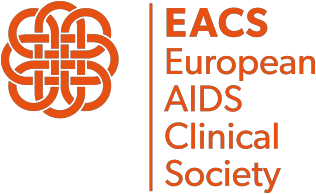9.3 PROMs
The use of Patient Reported Outcome Measures (PROMs) in HIV Clinical Care
Patient reported outcome measures (PROMs) are being increasingly used in clinical care to directly measure patient symptomatology and quality of life.
EACS guidelines recommend utilization of PROM tools annually in every individual to:
- facilitate the dialogue between care providers and the patient
- improve patient and physicians’ awareness of their own health
- empower patients in lifestyle improvement
- introduce patient-centered care
Who should be assessed?
All persons with HIV in particular prior to or during a healthcare encounter with a care provider including telemedicine encounters. Whichever approach is chosen, the purpose of collecting PROMs is to evaluate them. Therefore, PROM results should always be discussed.
What to collect?
PROMs pertain multidimensional domains including (but not limited to): physical, mental and sexual health, pain, stigma, family/community support, social isolation, loneliness, food security, housing, financial and migration status.
Domains should be chosen according to local and regional requirements, age, socio-economic background and environmental characteristics in consultation with local patient representatives.
How to choose PROMs?
Prioritize PROMs which are:
- designed and validated for a specific outcome(i)
- available in multiple languages
- short and concise (consider using computer adaptive testing if available)
- formulated in understandable way
- are supported by local guidelines or healthcare providers
- validated in people with HIV (if available)
How to collect?
PROMs are generally self-completed questionnaires (EACS guideline recommend some screening tools for anxiety, depression and sexual function). In addition, a widely used and important PROM are those to assess Health Related Quality of Life (HRQoL) for example EQ-5D-5L or SF36 or HIV specific PROMs for HRQoL (for example WHOQoL).
Ideally PROMs should be integrated within electronic patients records and collected using electronic tools, including websites, tablets or apps. However, people with technological or language barriers may have higher burdens of unmet needs and may require assistance to complete PROMs.
i PROMIS website has numerous examples of validated questionnaires: www.healthmeasures.net/explore-measurement-systems/promis, or www.healthmeasures.net/explore-measurement-systems/promis/intro-topromis/ list-of-adult-measures
